Introduction
Leak detection and repair are vital aspects of maintaining efficient plumbing systems. Small leaks, if left undetected and unrepaired, can lead to significant damage and costly repairs. This article will explore the importance of leak detection and repair, potential causes of broken pipes, and the steps homeowners and businesses should take when they discover a leak.
The Significance of Leak Detection and Repair
Leak detection and repair play a crucial role in preventing further damage and minimizing water waste. Prompt identification and repair of leaks help conserve water resources, reduce water bills, and maintain the integrity of plumbing systems.
1. Water Conservation
By promptly detecting and repairing leaks, homeowners and businesses can contribute to water conservation efforts. Even small leaks can waste a significant amount of water over time. Repairing these leaks helps conserve water and protects the environment.
2. Cost Savings
Leak detection and repair can lead to substantial cost savings. Leaks not only waste water but also contribute to increased water bills. By fixing leaks promptly, homeowners and businesses can prevent unnecessary expenses and reduce their overall water consumption.
3. Preventing Property Damage
Undetected leaks can cause extensive damage to property, including walls, floors, and foundations. Moisture buildup from leaks can lead to mold growth and compromise the structural integrity of buildings. By regularly inspecting and repairing leaks, property owners can avoid costly repairs and maintain their property’s value.
Potential Causes of Broken Pipes
Understanding the causes of broken pipes can help homeowners and businesses take preventive measures to avoid such issues in the future. Here are some common causes of broken pipes:
1. Age and Corrosion
Over time, pipes deteriorate and corrode. Aging pipes are more susceptible to leaks and breaks. Regular inspections and timely replacement of old or corroded pipes can prevent potential damage.
2. Freezing Temperatures
In regions with cold climates, freezing temperatures can cause water within the pipes to expand and lead to pipe bursts. Proper insulation and prevention methods, such as applying heat tape or allowing faucets to drip during freezing weather, can help mitigate the risk of pipes freezing and bursting.
3. Tree Roots
Tree roots can infiltrate underground water lines, causing pipe damage and potentially leading to burst pipes. Homeowners should be cautious when planting trees near water lines and regularly monitor root growth to prevent damage.
4. Ground Movements
Ground movements, such as earthquakes or soil settlement, can exert pressure on pipes, leading to cracks or breaks. Reinforced pipe installation methods and regular inspections can help identify and address potential issues arising from ground movements.
Steps to Take When a Leak is Detected
When a leak is detected, it is essential to take immediate action to minimize damage and prevent further complications. Here are the steps homeowners and businesses should follow:
1. Turn Off the Water
The first step is to shut off the water supply to the affected area or the entire property to prevent any additional water damage.
2. Call a Professional
Contact a professional plumbing service, such as Water Damage Restoration Pros of Las Vegas, at [725-210-8500], renowned for their expertise in leak detection and repair. Their skilled technicians can assess the situation and carry out the necessary repairs.
3. Document the Damage
Take pictures or videos of the affected areas and any visible damage for insurance purposes. This documentation can support your claim and facilitate the reimbursement process.
4. Contact Your Insurance Company
Notify your insurance company about the damage caused by the leak. They can guide you through the necessary steps to file a claim and provide coverage for the repairs.
5. Implement Preventive Measures
After the repairs are complete, consider implementing preventive measures to minimize the risk of future leaks. Regular inspections, insulation, and timely maintenance can help prevent future plumbing issues.
Frequently Asked Questions (FAQs)
What should I do when I find a burst or broken pipe?
- Turn off the water
- Call a professional plumber
- Remove any valuables from the affected area
- Call your insurance company
- Document the damage
Source:
What To Do When You Find A Broken Pipe (Or Burst Pipe)
How much does it cost to repair a burst pipe?
Source:
How Much Does a Burst Pipe Cost to Repair? [2023 Data]
In Conclusion
Leak detection and repair are essential in maintaining efficient plumbing systems and preventing extensive damage. By promptly addressing leaks, property owners can conserve water, save costs, and safeguard their property from water-related issues. Regular maintenance and preventive measures are key to ensuring the longevity of plumbing systems and preventing future leaks and pipe bursts.


